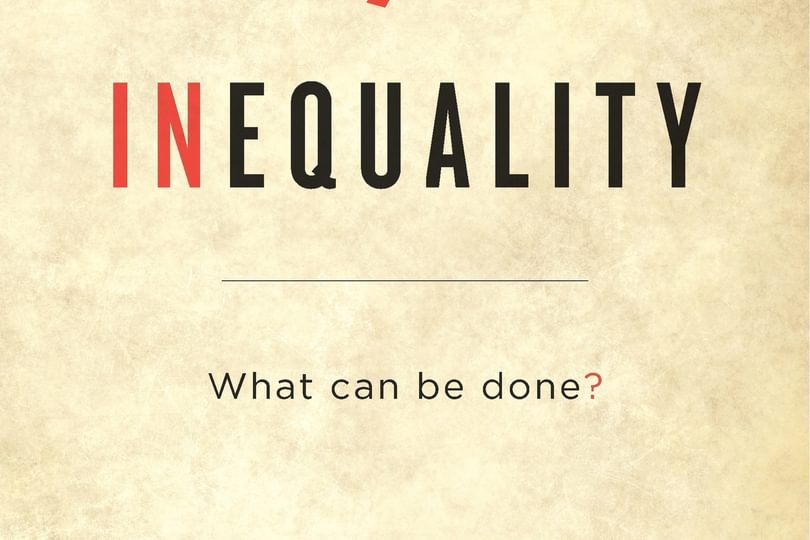
Public awareness of inequality is at an all-time high, with frequent public discussion of both the one per cent and the 99 per cent. But what are the practical solutions to dealing with the problem? In a new book, Inequality: What Can Be Done?, Professor Sir Tony Atkinson looks at the extent of inequality today, takes lessons from history, and sets out a comprehensive set of policies that could help to reduce the gap between rich and poor.
“I wrote the book mainly out of a sense of frustration,” he says. “There was a lot of discussion last year following Thomas Piketty’s book, Capital, and all the great and the good were saying how terrible the problem was, but not one was saying what could concretely be done about it. Many politicians will say it’s about education and training and I don’t disagree with that. But education is only part of the story.”
The means to genuinely reduce inequality are within our grasp, he argues, and, in many cases, are not far removed from current policy. “The attack on child benefit, for example, has been misguided and has intergenerational consequences. In the book I recommend a substantial increase in child benefit, and a minimum benefit for children across Europe. It’s not that far removed from practical politics. I also discuss the idea of a basic income, or ‘citizen’s income’, a concept which is discussed more outside the UK than in. The UK is particularly unimaginative in how it has thought about social security.”
Another of Inequality’s policy proposals is the ‘living wage’, which Professor Atkinson, Senior Research Fellow at the Institute for New Economic Thinking at the Oxford Martin School, argues is entirely feasible. “Even the Chancellor has been talking about raising the minimum wage,” he says. “One of the problems we have is that a lot of people are working and are still below the poverty line. If wages were raised it would actually ease the budget.”
The book counters the arguments that inequality is inevitable due to globalisation and market forces. There is cause for optimism, says Professor Atkinson, but it requires action so that changes to technology and employment can benefit society, rather than bring about further inequality.
“We need to have some way of thinking about the kinds of innovation we want to have,” he says.” If we concentrate solely on replacing people, then those people won’t have any income.”
Looking at the future for today’s youth, Professor Atkinson says the abolition of the Child Trust Fund scheme was regrettable. “It would give us a lot of flexibility if, when a person reached the age of 18, they were able to receive ten, fifteen, or twenty thousand pounds which they could use for different things, such as paying for a degree, training, or starting up their own business. It’s pretty bleak if you leave school and the best you can hope for is a zero hours contract. A policy like this would make it harder for firms to operate in the way that some do. It’s not a new idea, it’s very old one, but it’s one which would be a counterpart to the large inheritances that some people receive, and it could be funded by redistributing the proceeds of inheritance tax.”
One of the main points of the book is to give a clear picture of the complexity of inequality, he says. “I wanted to explain how much inequality there is, and that it’s not just the sort of thing you can look up and say ‘That’s the number’. It’s not a commentary on the last five years, we don’t know about that period yet because there is quite a lag in assembling the statistics.”
And Professor Atkinson is clear that the problem of inequality is a pervasive one that impacts on everything from health through to the educational performance of a country, and its economy. And it is not just politicians who have a role to play in fixing the problem, he says; the responsibility lies also with companies, the legal system, and individuals.
“In the book I try to say that we have to look at all the different aspects of our lives. It’s not just the Chancellor who is responsible. We have to look at the nature of the society in which we live. Do we want to live in a society where some people are queueing for food banks while others are queueing for trips to the moon? In the US, the rates of longevity are increasing for the wealthy. It could result in a society where you have lot of very rich, old people.
“We must also look at the interconnections between inequality and politics. You have lobby groups funded by people who are acting very much in their own personal interests. Not all of them, but there is an unholy dance between money and politics.”
- Inequality: What Can Be Done? is published on 23 April 2015 by Harvard University Press
- Join us for the launch of the book at the Oxford Martin School on 23 April